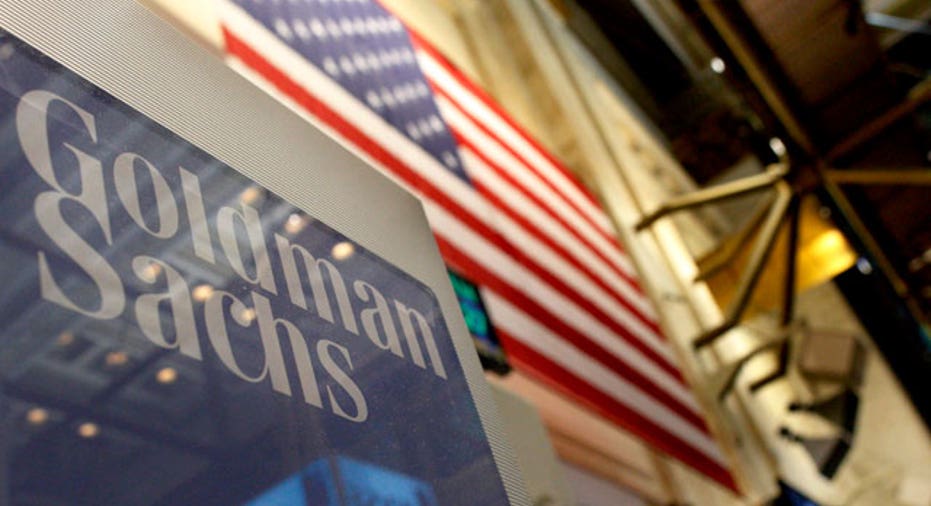Goldman, Morgan Stanley Skirting FD Rules?

How did Wall Street have a good idea that Morgan Stanley (NYSE:MS) would post solid third-quarter earnings while its arch rival Goldman Sachs (NYSE:GS) would post only its second quarterly loss since becoming a public company?
The answer may reflect a problem still nagging the financial-services business more than 10 years after the Securities and Exchange Commission passed a rule that bars companies from providing analysts and investors private guidance on earnings before this information is released to the general public.
The regulation, known as Rule FD, or “fair disclosure,” is designed to prevent what was once -- and some on Wall Street say still is -- commonplace in Corporate America: senior executives at big companies providing “whispers” on upcoming earnings to analysts and investors.
Former SEC chairman Arthur Levitt pushed for the rule to prevent this type of early disclosure because he believed it was a form of insider trading, with analysts and insiders being able to trade shares of companies based on early whispers before public investors, who don’t have the same access to top company officials and the information they provide.
An SEC spokesman said proving a violation of FD is a “very facts and circumstances” case, meaning investigators need to know if the information being offered crosses the line into what’s known as “material non-public” information, much the same way insider-trading cases are developed. But the spokesman said such whispers don’t have to be direct indications about upcoming earnings.
“You can’t do a wink and a nod or cross you leg to indicate how the quarter is turning out,” the spokesman said. “That would cross the line."
Did executives at Morgan and Goldman recently cross the line into a Rule FD violation before announcing earnings this week?
Here’s what we know: Shares of Morgan were in a freefall late last month as rumors spread about its exposure to troubled European banks and sovereign debt, particularly following a report on popular financial blog ZeroHedge that provided details about that exposure. CEO James Gorman reached out to a select group of analysts to tell them that the firm exposure was actually quite small.
Then people inside Morgan said senior executives began to tout that the firm would have “solid” third-quarter earnings that would likely beat those offered by Goldman Sachs, where senior executives were already providing guidance that the firm’s third-quarter results would be disappointing.
And look what happened: Morgan reported third-quarter earnings of $2.15 billion, or $1.15 per share, Wednesday, while Goldman announced yesterday that it lost $428 million in the third quarter.
It’s unclear what senior executives at Goldman Sachs said to analysts in the days and weeks leading up to the earnings announcement, but according to Wall Street sources with direct knowledge of the matter, firm officials were so adamant that the firm would post disappointing third-quarter results that many analysts began predicting that the firm would post a loss, as it did yesterday, sending shares lower for at least the past month.
Meanwhile, shares of Morgan traded higher following a report on the FOX Business Network on October 5 that firm executives were telling analysts and employees to expect a “solid” third quarter. The report caught the attention of Morgan’s compliance department, prompting a telephone call from a Morgan Stanley press official saying that Gorman was merely repeating analysts’ projections.
A spokesman for Morgan Stanley did not deny that the company provided guidance to analysts but said “we did not violate Rule FD.” He declined further comment. A spokesman for Goldman also wouldn’t deny providing guidance and added: “Any analyst following our business could do the math and decide we were likely to report a loss for the quarter.”
The SEC would not say whether it was investigating Goldman or Morgan Stanley over Rule FD compliance, but attorney Bryn Vaaler of Dorsey and Whitney says Rule FD was designed to prevent the types of disclosures that sources say have been coming from executives at Morgan Stanley and Goldman Sachs.
“Their argument could be that they are not giving out any material information but that is a rare case, where that is not material information,” Vaaler said. “If a firm is calling analysts ahead of time, that is exactly the sort of thing that Reg FD was supposed to stop.”



















